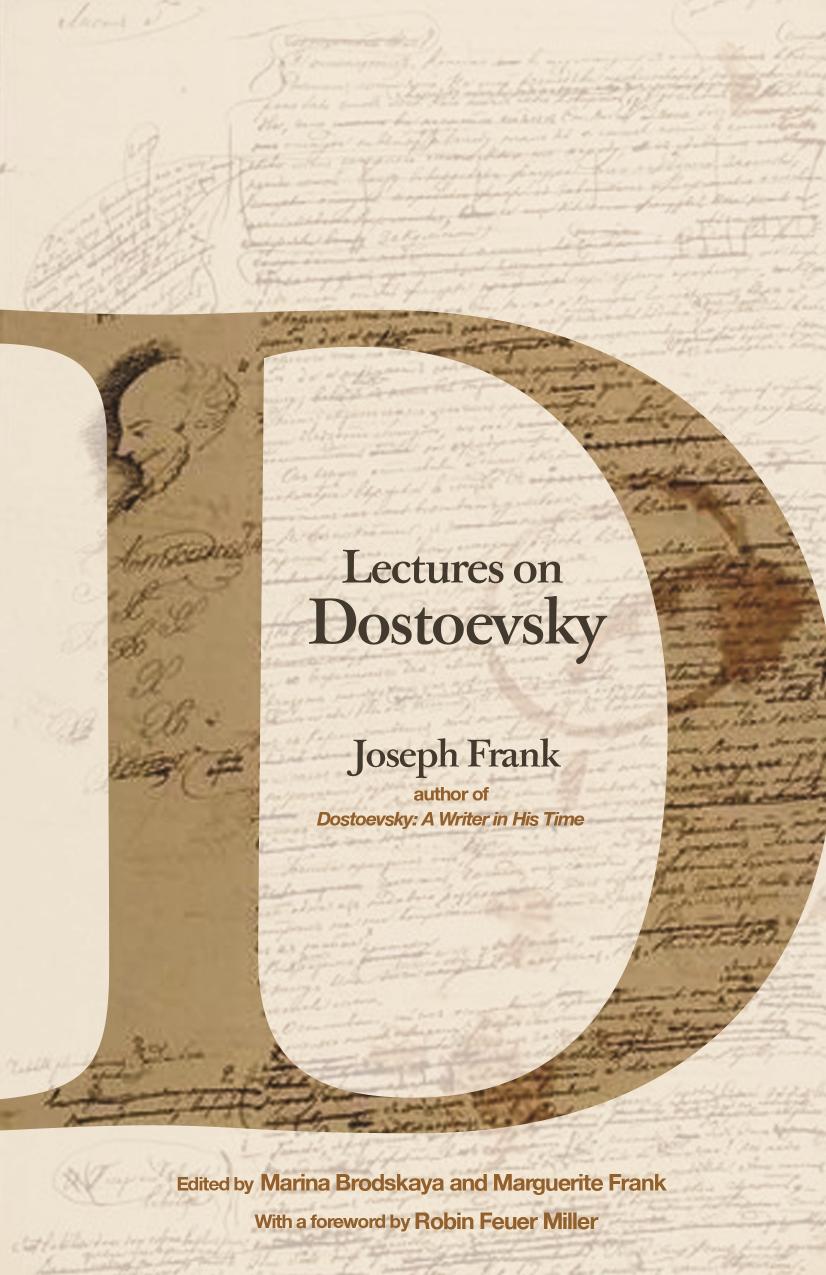Lectures on Dostoevsky by Joseph Frank

Author:Joseph Frank
Language: eng
Format: epub, pdf
Publisher: Princeton University Press
Published: 2019-10-14T00:00:00+00:00
Lecture 2
In the last lecture we touched upon the idea of the ideological background, so important for a proper understanding of Crime and Punishment. This doesn’t mean that the work is about these issues in any strict sense. Dostoevsky is not writing a social-political novel in which people argue about or simply illustrate the various ideas of the 1860s, though there are dialogues in which he does parody such ideas. He does so with a character like Lebezyatnikov and some of the speeches of Razumikhin. But what made Dostoevsky so great a writer is precisely that he did not stay on the level of the ordinary arguments of his time but used them rather as the source of his inspiration. He began with them—but then thought these ideas through to their ultimate consequences in moral-psychological terms. And it was on this imaginary level that he was able to dramatize them—always starting from something that existed in the social-cultural arguments and polemics of the time.
One of the criticisms that has sometimes been made against my approach to his works is that in focusing as much as I do on the social-cultural context, I reduce his novels to being a reflection of the limited issues and questions of his own day. What is the universal importance and relevance of such novels as Crime and Punishment if one always has to be searching out ideas and ideological quarrels that have long been forgotten?
There is something to be said for this point of view. Too often a concentration on the context, whether it is historically social-cultural, as in this case, or whether it comes from other sources, such as gender and race for example, tends to lose sight and forget that if we are studying a great writer, we are doing so precisely because he/she was able to raise this context onto a higher or more general level. A great work of art always transcends the conditions of its creation and has meanings that go far beyond what its own period might have thought about it.
In that sense I would agree with such critics, but I don’t accept that my own work is guilty of this critical fallacy. Or at least, being aware of it, I do my best to avoid falling into such an error. At the same time, I do try to avoid another error that, so far as Dostoevsky is concerned, is much more widespread. This is to interpret him exclusively in terms of the most general psychological and philosophical categories, without attempting to investigate what these actually meant in his own time. One could easily say, for example, and without being wrong, that the real theme of Crime and Punishment is the eternal conflict in Western culture between love and justice, and one could analyze the work in terms of such general moral ideas. But this is not the place to start from because what’s not really known is what these words actually mean within the context of the time
Download
This site does not store any files on its server. We only index and link to content provided by other sites. Please contact the content providers to delete copyright contents if any and email us, we'll remove relevant links or contents immediately.
| African | Asian |
| Australian & Oceanian | Canadian |
| Caribbean & Latin American | European |
| Jewish | Middle Eastern |
| Russian | United States |
4 3 2 1: A Novel by Paul Auster(11076)
The handmaid's tale by Margaret Atwood(6876)
Giovanni's Room by James Baldwin(5896)
Big Magic: Creative Living Beyond Fear by Elizabeth Gilbert(4736)
Asking the Right Questions: A Guide to Critical Thinking by M. Neil Browne & Stuart M. Keeley(4600)
On Writing A Memoir of the Craft by Stephen King(4222)
Ego Is the Enemy by Ryan Holiday(4004)
Ken Follett - World without end by Ken Follett(3984)
The Body: A Guide for Occupants by Bill Bryson(3817)
Bluets by Maggie Nelson(3724)
Adulting by Kelly Williams Brown(3681)
Guilty Pleasures by Laurell K Hamilton(3601)
Eat That Frog! by Brian Tracy(3528)
White Noise - A Novel by Don DeLillo(3443)
The Poetry of Pablo Neruda by Pablo Neruda(3372)
Alive: The Story of the Andes Survivors by Piers Paul Read(3321)
The Bookshop by Penelope Fitzgerald(3238)
The Book of Joy by Dalai Lama(3237)
Fingerprints of the Gods by Graham Hancock(3224)
